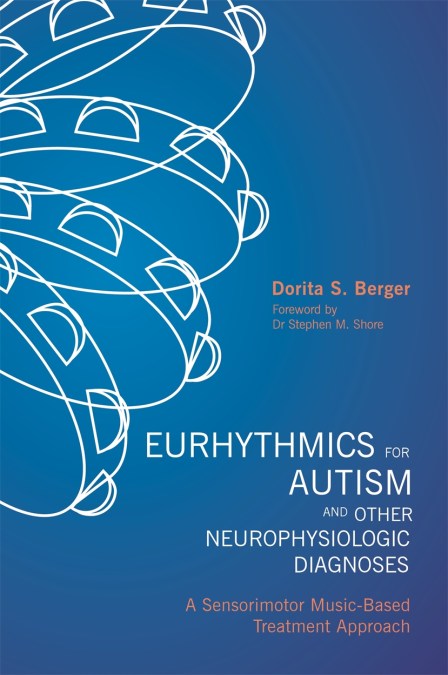Eurhythmics for Autism and Other Neurophysiologic Diagnoses
On sale
21st October 2015
Price: £32.99
In Eurhythmics for Autism and Other Neurophysiologic Diagnoses, Dorita S. Berger reveals how Eurhythmics, a method of teaching the musical concepts of rhythm, structure and expression kinaesthetically through movement, can help develop sensorimotor skills in children and adults with autism and other special needs.
Covering both theory and practice, she explains this innovative, music-based approach and how it can also address cognitive and sensory issues in adults with debilitating conditions, such as dementia or post-traumatic stress disorder. With a particular emphasis on autism, she provides clear and adaptable session plans, suitable for working with children and adults of all ages.
Covering both theory and practice, she explains this innovative, music-based approach and how it can also address cognitive and sensory issues in adults with debilitating conditions, such as dementia or post-traumatic stress disorder. With a particular emphasis on autism, she provides clear and adaptable session plans, suitable for working with children and adults of all ages.
Newsletter Signup
By clicking ‘Sign Up,’ I acknowledge that I have read and agree to Hachette Book Group’s Privacy Policy and Terms of Use
Reviews
In a book like no other, Dr. Berger masterfully introduces the science behind the power of music and movement, followed by artistically presented, easy-to-implement, and practical intervention solutions for the clinician, parent, or other person to connect with individuals with autism and other neurophysiological diagnoses.
Dorita Berger's book is a gift to all individuals on the autism spectrum. As a music therapist and scientist, Dr. Berger combines cutting-edge research with a healthy dose of practical advice to show how eurhythmics in a music therapy-based clinical environment can be used to support a wide range of neurophysiologic diagnoses. This book is an outstanding resource for therapists, neuroscientists, and families.
Dori Berger is that rare combination of musician, scientist and clinician. Based on her extensive research experience, she unfolds a detailed prescription of protocols, culled from Eurhythmics and the most recent science, that can lead to dramatically improved results. In doing so, she makes a clear argument for how music moves from a passive therapy to a potent intervention!
A professional musician and practitioner in sensorimotor treatment of autism and related diagnoses, Dorita Berger writes brilliantly to inspire therapists who help persons with disorders of intention and awareness share life with self-confidence and joy. With up-to-date brain science of intentions and feelings, this book will also be a resource for students of psychology, medicine and education. Born musical, our sense of others' rhythms and melodies of affection, invention and discovery can be enhanced to overcome confusion and anxiety.
[I]t was with great anticipation and enthusiasm that I welcomed the news of an addition to the literature in Dorita S. Berger's Eurhythmics for Autism and Other Neurophysiologic Diagnoses: A Sensorimotor Music-Based Treatment Approach... Reading this book as a specialist in Dalcroze Eurhythmics, I learnt a great deal about the science behind what I do... Her work focuses on finding a process of adaptation for those with special needs, which allows them to respond with courage to the demands of their environment, and to life in general... The scientific theories introduced in the opening section permeate the second section; the reader is led to understand why a particular exercise has a particular effect... As a whole, this is an accessible and inviting text to read... the reader is taken on a journey of understanding through carefully placed introductions and summaries... This is a book for learners, for those seeking to deepen their practise and who welcome the new. I encourage you to read it.

